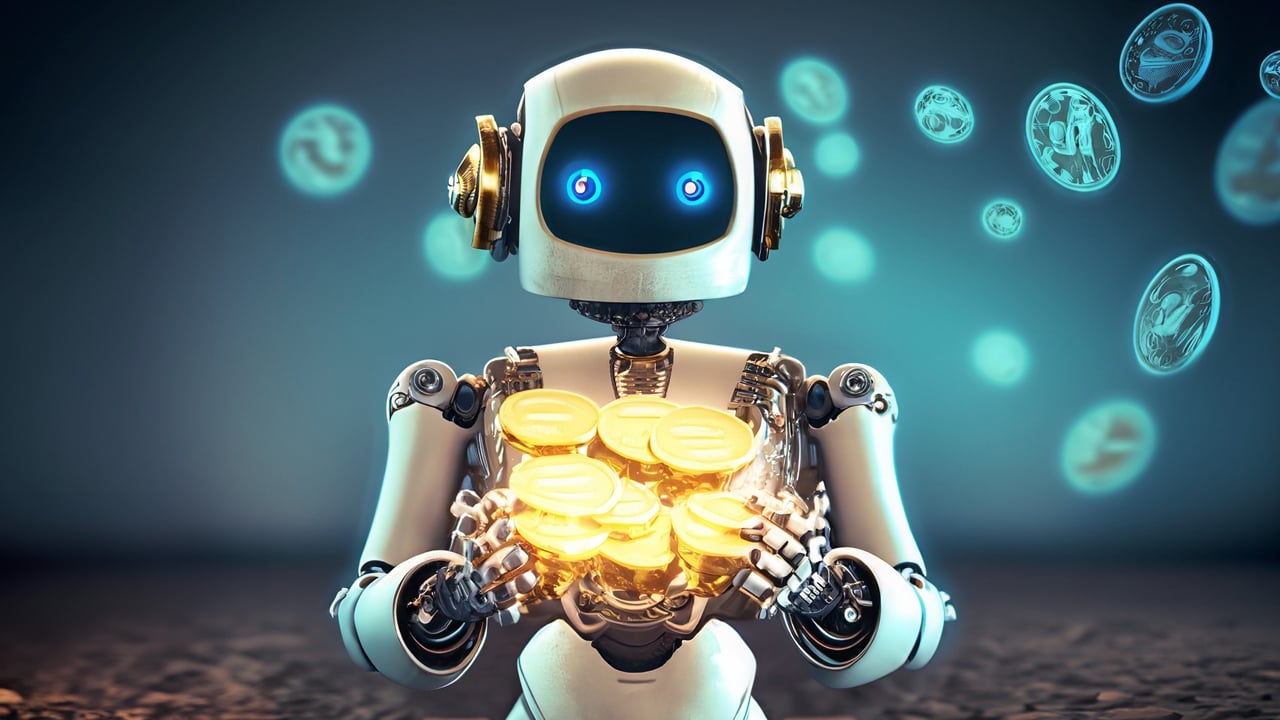User Tag List
Results 1 to 1 of 1
-
01-30-2025 #1Moderator


- Reputation
- 1
- Join Date
- Jul 2024
- Posts
- 2,609
- Thanks G/R
- 1/0
- Trade Feedback
- 0 (0%)
- Mentioned
- 0 Post(s)
- Tagged
- 0 Thread(s)
AI in Play-to-Earn Games: Fixing Crypto Game Economies for Long-Term Growth
AI in Play-to-Earn Games: Fixing Crypto Game Economies for Long-Term Growth

Introduction
The rise of play-to-earn (P2E) games in the blockchain space has introduced new economic models that allow players to monetize their in-game activities. However, sustainability remains a significant challenge. Many crypto-based game economies experience boom-and-bust cycles, where initial hype attracts players and investors, only for the in-game economy to collapse due to inflation, poor tokenomics, and lack of long-term engagement strategies. Artificial intelligence (AI) presents an opportunity to address these issues by optimizing game economies, enhancing player experience, and ensuring long-term economic stability.
The Problems with Current Crypto Game Economies
Token Inflation and Unsustainable Rewards
- Many P2E games struggle with excessive token emissions, leading to rapid inflation and a decline in the value of in-game assets.
- Unsustainable reward systems drive speculation rather than genuine engagement, leading to massive sell-offs when rewards decline.
Lack of Player Retention and Engagement
- Many crypto games attract users primarily for earning opportunities rather than for engaging gameplay.
- Once rewards diminish, player numbers drop drastically, leading to economic instability.
Poor Game Design and Economy Management
- Most blockchain games focus more on financial incentives rather than creating immersive gaming experiences.
- Weak in-game economies and lack of balancing mechanisms lead to economic crashes.
Market Manipulation and Bot Exploitation
- Automated farming and bot exploitation devalue in-game assets.
- Whales and early investors often manipulate markets, making it difficult for new players to participate fairly.
How AI Can Improve Play-to-Earn Game Economies
AI-Driven Dynamic Tokenomics
- AI can monitor in-game economic activities and adjust token emissions dynamically to prevent hyperinflation.
- Predictive algorithms can assess player behavior and adjust staking and reward mechanisms accordingly.
Enhanced Player Retention Through Personalized Experiences
- AI-driven analytics can personalize game experiences based on player preferences, increasing retention rates.
- Intelligent matchmaking and procedural content generation ensure engaging gameplay for all skill levels.
Automated Economic Balancing
- AI can detect economic imbalances and introduce corrective measures like price floors, tax mechanisms, and incentive realignments.
- Smart contracts powered by AI can dynamically adjust in-game resource production and consumption rates to ensure economic sustainability.
Anti-Bot Mechanisms and Fair Play Enhancements
- AI-driven anti-bot detection can identify and block exploitative behavior, ensuring fairer economies.
- Machine learning models can analyze player interactions and flag suspicious activities for review.
AI for Decentralized Governance and Decision Making
- AI-driven governance models can facilitate fairer decision-making in decentralized autonomous organizations (DAOs).
- Predictive AI can analyze governance proposals and forecast their impact on the economy before implementation.
Case Studies: AI Implementation in Blockchain Gaming
Axie Infinity’s Economic Challenges and Potential AI Solutions
- Axie Infinity saw a rapid rise but faced an economic downturn due to inflationary token models.
- AI-driven economic balancing and automated governance could have mitigated these issues by dynamically adjusting reward structures.
AI in Guild Management: Yield Guild Games (YGG)
- AI can assist guilds in optimizing resource allocation, identifying valuable in-game assets, and preventing exploitative practices.
- Predictive analytics can help guild managers make data-driven investment decisions in the gaming ecosystem.
AI-Enhanced NFT Marketplaces
- AI-powered pricing models can help stabilize NFT values, reducing speculative volatility.
- Automated fraud detection can prevent wash trading and market manipulation in NFT transactions.
The Future of AI in Play-to-Earn Gaming
AI-Generated Game Economies
- Future blockchain games could leverage AI to create dynamic economies that evolve based on player interactions and external market factors.
- AI-generated economic policies could balance supply and demand, ensuring long-term economic stability.
Autonomous AI Game Masters
- AI-driven game masters can adapt in-game challenges based on economic conditions, keeping gameplay fresh and rewarding.
- This could replace traditional static game design, making experiences more fluid and engaging.
AI-Driven Decentralized Marketplaces
- AI-powered smart contracts can facilitate fair and efficient in-game asset trading.
- Predictive market analysis can help players and investors make informed decisions based on real-time data.
Conclusion
AI presents a revolutionary opportunity to stabilize and enhance the long-term viability of play-to-earn game economies. By addressing issues such as token inflation, player retention, economic balancing, and fair play, AI can transform blockchain gaming into a sustainable industry. The future of play-to-earn gaming depends on integrating intelligent, adaptive economic models that prioritize long-term engagement over short-term speculation. With AI-driven innovation, blockchain gaming can evolve into a more immersive, fair, and economically viable ecosystem.
Similar Threads
-
Crypto Game Economies & AI: The Future of Sustainable Play-to-Earn Models
By Seithtanveer in forum CasinoReplies: 0Last Post: 01-30-2025, 04:36 AM -
How AI is Revolutionizing Crypto Game Economies: Balancing Play-to-Earn Models
By Seithtanveer in forum CasinoReplies: 0Last Post: 01-30-2025, 04:25 AM -
Mastering Crypto Gaming: The Role of AI in Increasing Your Earnings
By Seithtanveer in forum CasinoReplies: 0Last Post: 01-26-2025, 01:56 AM -
From Play-to-Earn to Smarter NPCs: How Blockchain and AI Are Changing Gaming Forever
By Seithtanveer in forum CasinoReplies: 0Last Post: 01-25-2025, 03:53 AM -
From Play-to-Earn to AI-Powered Features: How Crypto Games are Evolving in 2025
By Seithtanveer in forum CasinoReplies: 0Last Post: 01-24-2025, 05:12 AM















 Reply With Quote
Reply With Quote







